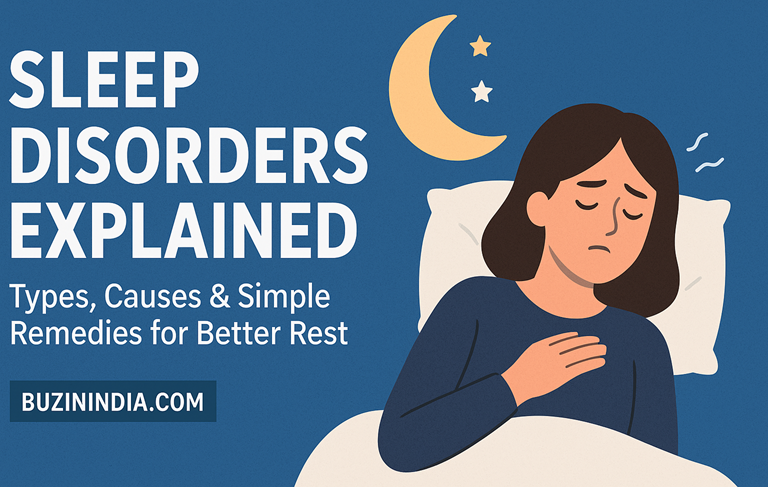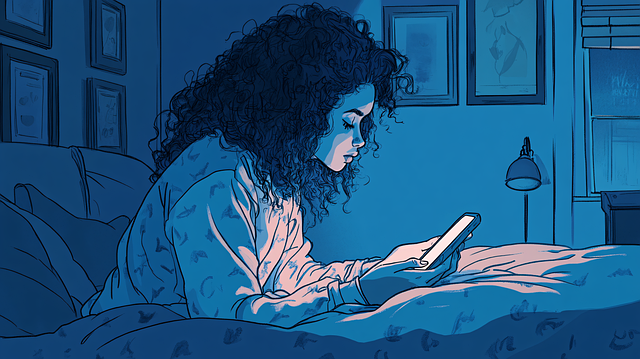Sleep Disorders: Sleep is essential for overall health and well-being, yet millions of people struggle with sleep disorders that affect their quality of life. Lack of proper rest can lead to fatigue, stress, reduced productivity, and long-term health problems. In this article, we’ll explain what sleep disorders are, their common types, causes, and possible remedies.

Table of Contents
🌙 What Are Sleep Disorders?
Sleep disorders are medical conditions that interfere with a person’s ability to fall asleep, stay asleep, or get restful sleep. These disturbances may be occasional or chronic, and they can significantly impact physical, mental, and emotional health.

🔎 Common Types of Sleep Disorders
- Insomnia
- Difficulty falling asleep or staying asleep.
- Can be caused by stress, anxiety, depression, or poor lifestyle habits.
- Sleep Apnea
- A condition where breathing repeatedly stops and starts during sleep.
- Symptoms include loud snoring, choking at night, and excessive daytime sleepiness.
- Restless Legs Syndrome (RLS)
- An uncontrollable urge to move the legs, especially at night.
- Can cause difficulty in falling asleep due to discomfort.
- Narcolepsy
- A neurological disorder causing sudden episodes of daytime sleep.
- Often accompanied by muscle weakness and sleep paralysis.
- Circadian Rhythm Disorders
- Occurs when the body’s internal clock is out of sync with daily routines.
- Common among shift workers or frequent travelers.

⚠️ Causes of Sleep Disorders
Several factors can contribute to sleep problems:
- Stress and Anxiety – Mental health plays a major role in sleep quality.
- Lifestyle Habits – Excessive caffeine, irregular schedules, or screen time before bed.
- Medical Conditions – Asthma, arthritis, or chronic pain can disrupt sleep.
- Genetics – Some sleep disorders like narcolepsy can run in families.
- Environmental Factors – Noise, light, or uncomfortable sleeping arrangements.

✅ Remedies and Treatment Options
Improving sleep often requires identifying the root cause. Here are some effective solutions:
- Practice Good Sleep Hygiene: Maintain a consistent sleep schedule, keep your bedroom dark and quiet, and avoid screens before bedtime.
- Relaxation Techniques: Meditation, yoga, and deep breathing exercises can reduce stress and promote restful sleep.
- Medical Treatment: In cases like sleep apnea or narcolepsy, consulting a doctor is essential. Treatment may involve CPAP machines, medications, or lifestyle changes.
- Limit Stimulants: Avoid caffeine, alcohol, and heavy meals close to bedtime.
- Exercise Regularly: Physical activity during the day improves sleep quality at night.

🛌 Final Thoughts On Sleep Disorders
Sleep disorders are more than just occasional sleepless nights—they can seriously affect your health if left untreated. Recognizing the symptoms early and adopting healthy sleep practices can make a big difference. If sleep issues persist, seeking medical advice is the best step toward better rest and improved well-being.
